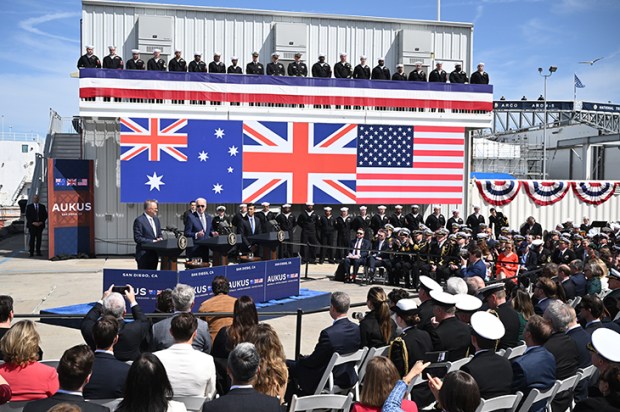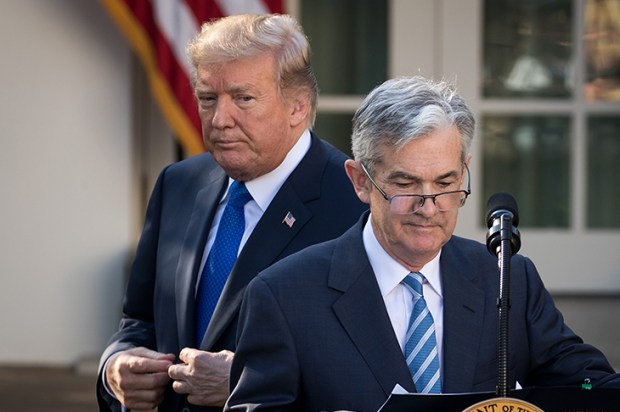Politicians routinely resort to name calling. It is unseemly. Sometimes they resort to personal attacks. All sides do it. When this happens the victim and his side loudly disparage the tactic in terms such as ‘this does you no credit’. This never occurs to them when they themselves chance upon the opportunity to unload a bit of dirt. Still, that said, I am sure most politicians would agree that, in a perfect world, and setting aside criminal matters, attacks on the opposition should only be based on their performance or their capacity to do their job.
Please bear with me as I pose a few hypotheticals. Suppose you are an aspiring politician who is a closet gay. Do you have an obligation to reveal your secret so that, say, homophobic voters can judge you on a matter irrelevant to your capacity as a parliamentarian? Most people, I suspect, would say no. But how about fundamentalist Christian voters? Do they have more right to know this fact? Or how about Muslim voters?
Or let’s say you’re a closet alcoholic? This may, arguably, affect your ability to do the job. Do voters have a right to know this about you, even if you are sober?
Or let’s say you are a retired Army officer and you are leveraging your managerial experience to bolster your credentials for election. Do voters have a right to know about the one time you screwed up a beach landing on exercise, resulting in the loss of a landing craft and injury to several soldiers?
There is no right or wrong answer to these questions. It is a grey area. But you might argue that any, or all, of the above scenarios impose a moral duty upon you to disclose, even though there may be no legal requirement. In fact, drafting such a statute is likely to be fraught with ambiguity, if not impossible.
Which brings me to the disingenuously titled ‘hush money’ trial in which President Trump has been disgracefully, and dangerously, convicted on, yes, trumped-up charges. (Could there ever have been a more appropriate juxtaposition of homonyms?)
The essence of District Attorney Bragg’s case is that had Trump’s alleged affair with Stormy Daniels come to light before the election, the outcome might have been different because a statistically significant number of voters would have turned away from Trump, presumably in disgust.
That may or may not be true, but it is highly speculative. The hook for this prosecution is not that Trump had an extramarital affair, but that he paid $130,000 to Stormy Daniels to hush the matter up. Had he paid the money in cash and, had Daniels kept schtum, he could not have been charged because there is no statute in New York against paying hush money. But the fact that Trump apparently committed a series of bookkeeping misdemeanours, by paying the money through his business accounts, is what opened the lid to this legal Pandora’s box.
You may argue that Trump had a moral obligation to disclose. But did he have a legal obligation?
From my perspective, the nub of the case goes to this instruction to the jury from Judge Merchan:
‘Under our law, a person is guilty of such a conspiracy when, with intent that conduct be performed that would promote or prevent the election of a person to public office by unlawful means, he or she agrees with one or more persons to engage in or cause the performance of such conduct.’
To me it seems a stretch of interminable length to infer that Trump’s desire to keep an embarrassing peccadillo from the public gaze materially promoted him as a candidate in the election. I suspect that, primarily, Trump, naturally, would have wanted to keep this from his wife, and from the public, in order to protect his wife. Sure, he may also have thought, ‘if this comes out it won’t help in the election either’.
Had the affair come out, he might have lost a few votes. But sexual adventures never harmed Bill Clinton or many other successful politicians, including our own Bob Hawke. Trump would have known this. He might have seen this as a personal embarrassment but irrelevant to his capacity to perform the role of president. I am guessing the number of American politicians who have concealed things of this nature would fill New York’s Yankee Stadium.
Or to put it another way, these misdemeanours only became felonious when they were committed in furtherance of an actual felony. In this case, what was the crime?
Trump was charged with 34 counts of intent to defraud, which is certainly a crime. But, in the event the fraud actually takes place, wouldn’t it be logical to drop the intent charges and simply charge Trump with the substantive offence, viz actual fraud? Bragg cannot avoid the inference that the ‘fraud’ (i.e. deceiving voters) did actually take place, because Trump stood for election and won.
Why, then, was there not a charge of actual fraud?
But even if my legal reasoning does not hold, it seems to me that a common-sense reason to overturn this conviction was that it was based on a bad-faith prosecution, and that the putative harm that came from Trump’s deception was so speculative, and so far in the past, that it could never justify the damage this case has wrought upon the rule of law in the United States. How many people were prosecuted for the countless ballot box infringements and irregularities uncovered in the 2020 election?
District Attorney Bragg was elected on a platform to ‘get Trump’ and he overturned a number of previous dismissals of the case based, apparently, on a new and novel interpretation of US jurisprudence. Did he stop for one moment to consider that his first duty is to the maintenance of justice and to the rule of law, not to bagging the scalp of a high-profile political opponent? Does he understand that justice is often a balancing act, in which the public good must predominate? Does he understand that he has done immeasurable damage to the body politic of the United States?
I don’t know if that is a consideration that the US Appeals Courts can take into account, but I bet – at least I hope – that many American voters will.
And how supremely ironic that the denial by then candidate Biden of the Hunter Biden laptop, and the disinformation by former intelligence officers that it was Russian misinformation, probably had the same effect that Trump has been found guilty of attempting to engineer.
What are the chances some zealous prosecutor will now come after Biden on the same basis? Or Clinton for the Russiagate hoax? Or the cabal of former intelligence officers who dismissed the Hunter laptop as Russian disinformation? Pigs might fly.
Let me conclude with another hypothetical. Suppose you were a former vice president who illegally removed classified documents from the White House and stored them in your garage. Suppose further that this came to light but that you were judged incompetent to be prosecuted over this matter. Would your statement that President Trump’s conviction proves that no one is above the law, be a) cynical, b) hypocritical or c) proof that there is some other extra-judicial position for a chosen few – outside the law, maybe.
Got something to add? Join the discussion and comment below.
You might disagree with half of it, but you’ll enjoy reading all of it. Try your first month for free, then just $2 a week for the remainder of your first year.












